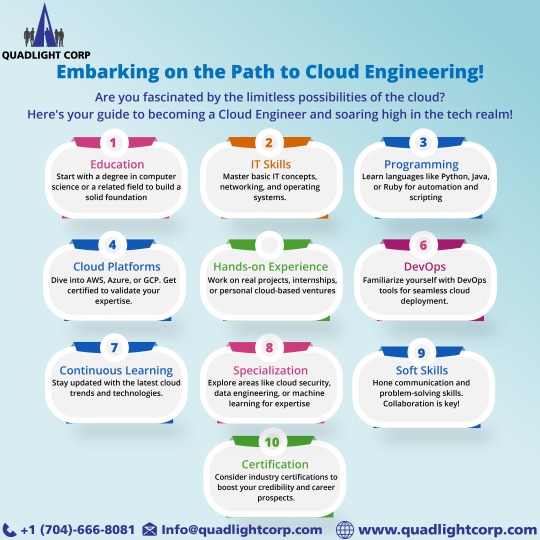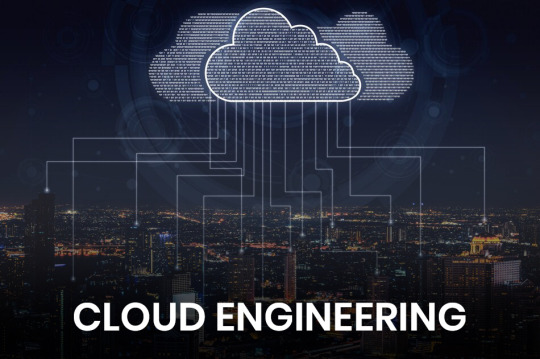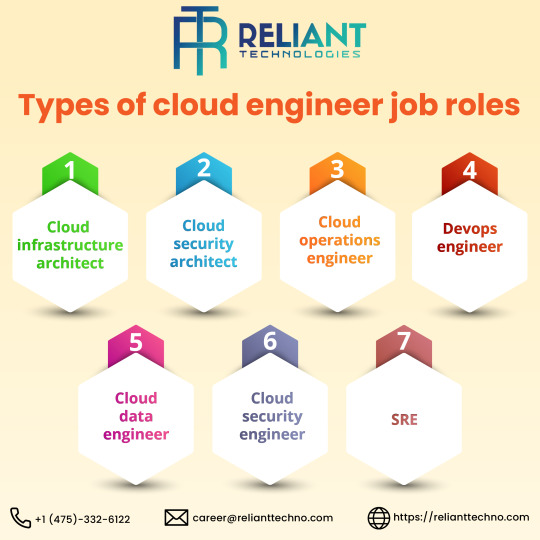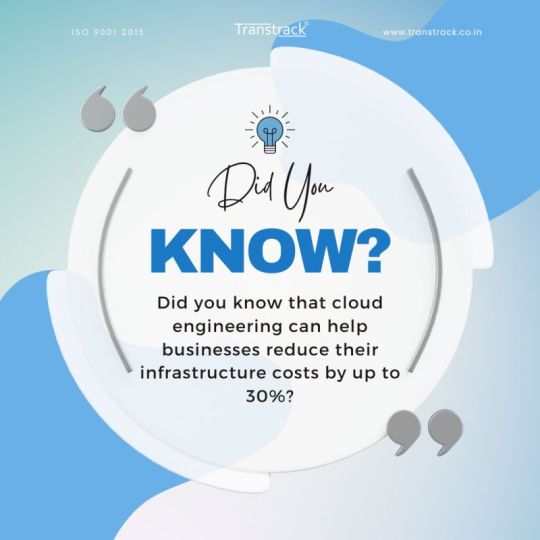#CloudEngineering
Explore tagged Tumblr posts
Text
Kickstart Your DevOps Career with Azure DevOps Certification!
Want to grow in your tech career? The AZ-400 certification proves your skills in automation, CI/CD, security, and monitoring using Azure DevOps.
What You’ll Learn:
How to automate software development Setting up CI/CD pipelines Managing cloud infrastructure Ensuring security & monitoring
How to Prepare: Get hands-on with Azure DevOps Study Microsoft’s official resources & practice tests
Get certified and take your career to the next level!
#AzureDevOps#DevOps#CloudComputing#Azure#TechCareers#Automation#MicrosoftAzure#SoftwareDevelopment#CareerGrowth#AzureTraining#ITCertification#CloudEngineering#TechSkills#CICD#LearnAzure
0 notes
Text
Why Companies Trust SDH for DevOps?
🔹 Guaranteed SLA – We meet deadlines & quality standards 🔹 Scalability & Growth – Future-proof your IT infrastructure 🔹 Direct Contractor – No middlemen, direct team interaction
💡 Accelerate your business with SDH DevOps!
0 notes
Text
Cloud Engineering Services

At Start Designs, we provide cutting-edge cloud engineering services tailored to businesses that aim to optimize operations, enhance scalability, and drive innovation. Our certified cloud engineers have extensive experience in designing, building, deploying, and managing cloud-based solutions using leading cloud platforms like AWS, Azure, and Google Cloud. Whether you are migrating from legacy systems, optimizing your cloud architecture, or enhancing security protocols, our team is equipped to handle your unique requirements with precision. We specialize in creating custom cloud infrastructures that deliver cost-efficiency, agility, and improved performance. Through our comprehensive services, businesses can leverage the cloud to streamline operations, improve data management, and stay ahead in a competitive market. From cloud migration to ongoing management and support, we ensure your cloud ecosystem is secure, scalable, and optimized for success. Partner with Start Designs to unlock the full potential of cloud technologies and achieve measurable results.
#CloudEngineering#CloudSolutions#CloudInfrastructure#ScalableCloud#CloudOptimization#CloudTech#CloudComputing#CloudServices#CloudTransformation#DigitalTransformation#CloudInnovation
0 notes
Text
Do you want hire cloud engineering team in India to manage 24*7 cloud operations. Visit us to learn more.
0 notes
Text
Why Migrating SQL to the Cloud is Crucial for Modern Enterprises
In the rapidly evolving world of digital transformation, businesses are constantly searching for innovative solutions to stay competitive. For modern enterprises, data is at the heart of operations, and efficiently managing that data is critical. One of the most impactful ways businesses can optimize their operations is by migrating SQL databases to the cloud.
At Nallas Corporation, we understand the strategic importance of cloud migration, particularly when it comes to mission-critical databases like SQL. As specialists in Information Technology Services, we help organizations streamline their cloud migration journeys, ensuring cost savings, scalability, and enhanced performance. But why exactly is migrating SQL to the cloud so crucial for today’s enterprises? Let’s explore.
Cost Efficiency and Flexibility
One of the primary drivers for migrating SQL databases to the cloud is the significant cost savings it offers. Traditional on-premises infrastructure requires substantial capital investment in hardware, maintenance, and upgrades. However, by moving to the cloud, enterprises can shift from a CapEx to an OpEx model, only paying for the resources they need, when they need them. This eliminates the costs associated with hardware obsolescence, replacement, and depreciation.
At Nallas, we specialize in cloud cost optimization. We help businesses configure their cloud environments to minimize waste and maximize efficiency. By analyzing your SQL workload and usage patterns, we ensure you are only paying for what you use, driving down your operational expenses.
Enhanced Scalability
In today's dynamic business environment, flexibility is key. SQL databases hosted in the cloud offer unparalleled scalability, enabling businesses to quickly adjust to changes in demand. Whether it's seasonal traffic spikes or rapid growth, the cloud allows for easy scaling up or down without the need for physical infrastructure changes.
For example, retail businesses can scale up their cloud-based SQL databases during high-demand seasons, such as the holiday shopping period, and scale back down during quieter times. At Nallas, we tailor your cloud solutions to ensure your SQL databases can handle any load, optimizing performance and resource usage in real-time.
Improved Performance and Business Agility
Migrating SQL workloads to the cloud results in enhanced performance. This is particularly true for SQL databases, where businesses can experience reduced latency and faster data processing speeds.
By leveraging Nallas ’s expertise in cloud services, we ensure that your SQL databases are configured for optimal performance, delivering a seamless user experience while ensuring quick access to critical data. This agility gives businesses a competitive edge, allowing them to quickly respond to market shifts and customer demands.
Disaster Recovery and Business Continuity
Disasters, whether natural or cyber, are inevitable. Cloud-based SQL databases provide robust disaster recovery solutions, enabling businesses to maintain continuity even in the face of unexpected outages. With automatic backups, easy failover options, and redundancy built into the cloud architecture, businesses can safeguard their data and minimize downtime.
At Nallas, we work with top-tier cloud providers to create tailored disaster recovery strategies for your SQL databases, ensuring business continuity and data protection during critical times.
Advanced Security and Compliance
One of the common concerns for businesses considering cloud migration is data security. However, cloud providers invest heavily in advanced security features, such as encryption, threat detection, and network monitoring.
By partnering with Nallas, businesses can rest assured that their SQL databases are protected by the latest security protocols. We help manage security configurations and ensure compliance with industry-specific regulations, allowing you to focus on growing your business without worrying about data breaches or security lapses.
Increased Innovation with Cloud-Native Tools
Migrating to the cloud unlocks a world of possibilities. With cloud-native tools and services like SQL, businesses can modernize their applications, improve collaboration, and gain access to cutting-edge technology such as AI and machine learning. These tools can greatly enhance decision-making and drive innovation, helping businesses stay ahead of the competition.
At Nallas, we guide our clients in adopting cloud-native services to maximize their SQL databases’ capabilities. From performance tuning to implementing AI-powered analytics, we provide comprehensive solutions to future-proof your database infrastructure.
Conclusion
Migrating SQL databases to the cloud is no longer just an option for enterprises; it's a necessity for staying competitive in today’s digital landscape. From cost savings to enhanced performance, the cloud offers numerous advantages that modern businesses cannot afford to ignore.
At Nallas, we are committed to guiding businesses through their cloud migration journeys with tailored solutions that meet their unique needs. By leveraging our expertise in IT Services, we ensure your SQL migration is smooth, secure, and optimized for success.
Contact us today to learn more about how we can help your business thrive in the cloud.
#CloudEngineering#CloudComputing#CloudArchitect#DevOps#AWSCloud#AzureCloud#GoogleCloudPlatform#CloudSecurity#CloudInfrastructure#CloudMigration#CloudNative#CloudAutomation#CloudDevOps#nallas
0 notes
Text
DEVOPS & CLOUD ENGINEERING - SPARK TECHNOLOGIES
As a leading IT services provider, Spark Technologies offers global business solutions to improve efficiency,add value, and reduce costs. We design, develop, implement, manage, and optimize systems for your business processing and infrastructure needs,whether private or public sector, in-house or outsourced.

0 notes
Text

Nexa Soul is a Website & App Development IT Company. It offers services like web development, web designing, android and iPhone app development, custom software development, cyber security, data mining & analysis, and cloud engineering. Visit the website to know more about its services.
#WebsiteDesign#WebDevelopment#ITCompany#CustomSoftwareDevelopment#AppDevelopment#AndroidApp#iOSApp#Cybersecurity#DataMining#DataAnalysis#CloudEngineering#SoftwareServices
1 note
·
View note
Text

Calling all talented Senior Cloud Engineers!
We're seeking passionate Senior Cloud Engineer to join us in Melbourne. If you have a knack for designing and implementing cutting-edge cloud solutions, we want to hear from you.
Apply now and unleash your potential!
Job Description - https://bizessence.com.au/jobs/senior-cloud-engineer/
#bizessence#seniorcloudengineer#cloudsolutions#cloudinfrastructure#cloudengineering#cloudtechnology#jobopening#techrecruitment#careeropportunity#jobopportunity#itcareers#hiringnow#careergrowth#melbournejobs#techjobs#hiring#nowhiring#australiajobs
1 note
·
View note
Text
What are the advantages/benefits of DevOps (AWS Dev)?
The advantages of DevOps in AWS (Amazon Web Services) include:
Faster Time to Market: Streamlined processes enable rapid deployment of code changes, leading to quicker delivery of new features and updates.
Scalability: AWS offers scalable infrastructure, allowing DevOps teams to easily accommodate fluctuations in workload and scale resources as needed.
Cost Efficiency: DevOps practices on AWS optimize resource utilization, minimizing infrastructure costs and maximizing ROI.
Automation: AWS provides a range of automation tools, enabling automation of deployment, testing, and infrastructure management tasks, reducing manual efforts and human errors.
High Availability: AWS offers robust services for fault tolerance and high availability, ensuring that applications remain accessible and operational even during failures.
Security: AWS provides a wide array of security features and compliance certifications, allowing DevOps teams to build and deploy secure applications and infrastructure.
Flexibility: AWS offers a wide range of services and deployment options, providing flexibility to DevOps teams to choose the right tools and technologies for their specific requirements.
Collaboration: DevOps practices promote collaboration between development and operations teams, fostering a culture of shared responsibility and continuous improvement on AWS.
#DevOps#AWS#CloudEngineering#Automation#Scalability#CostEfficiency#HighAvailability#Security#Collaboration#Flexibility#magistersign#onlinetraining#support#cannada#usa
0 notes
Text
Certified Master DevOps Engineer Course Your master's program in online DevOps engineer training will get you ready for a job in DevOps technology. You will gain technical proficiency in cloud application deployment, management, and monitoring with this DevOps Engineer course. With this DevOps Engineer Certification, you may learn how to utilize DevOps technologies like Git, Docker, and Jenkins and explore deployment strategies, CI/CD pipelines, and observability.
Ph: +91 9985958513
E-mail: Info@mindboxtrainings.com
visit: https://www.mindboxtrainings.com/

1 note
·
View note
Text

What is a Trigger in Azure?
Comment your answer below!
Let's see how many Azure experts are here! Want to learn more about Azure DevOps and automation?
Join Azure Trainings and upgrade your skills today! Call us: +91 98824 98844 Visit: www.azuretrainings.in
#AzureDevOps#AzureTrigger#CloudAutomation#LearnAzure#AzureTraining#AzureExperts#CI_CD#DevOps#CloudComputing#TechCommunity#ITTraining#CloudSolutions#AzurePipeline#CloudEngineering#AzureLearning#TechGrowth
0 notes
Text
Cloud Engineer

Cloud is the new trend setter in the industry.
Professional opportunities in cloud are best paying nowadays.
Hurry up, start building your career in IT with the leading technology of the industry.
Connect with us and get the best offers with us.
For More Info: Mobile: +1(704)-666-8081 Email: [email protected] Website: https://quadlightcorp.com/
#Quadlightcorp#CloudEngineer#CloudEngineering#staffingagency#Staffing#jobOpenings#ITJobs#ITStaffing#Jobopenings
0 notes
Text
Unlocking the Power of Clouds: A Beginner's Guide to Cloud Engineering

Introduction:
In today's digital era, the term "cloud" is more than just fluffy white shapes in the sky. Cloud computing has revolutionized the way we store, access, and process data. This beginner's guide aims to demystify the world of Cloud Engineering, offering insights into the basics and the incredible possibilities it brings.
What is Cloud Engineering?
At its core, Cloud Engineering involves designing, planning, and managing the infrastructure of cloud computing systems. Cloud computing itself is like renting computing power and storage space on the internet instead of relying solely on your computer's hard drive. Cloud Engineering takes this concept to the next level, optimizing and customizing these cloud resources for specific needs.
Key Components of Cloud Engineering:
Infrastructure as a Service (IaaS): Think of IaaS as the foundation. It provides virtualized computing resources over the internet, including virtual machines, storage, and networks. It's like having a virtual playground where you can create and modify your computing environment without worrying about physical hardware.
Platform as a Service (PaaS): PaaS is like the next layer of the cloud cake. It offers a platform that allows developers to build, deploy, and scale applications without dealing with the nitty-gritty details of infrastructure. It's like having a fully-equipped kitchen ready for you to cook without worrying about the plumbing and wiring.
Software as a Service (SaaS): SaaS is the ready-to-use portion of the cloud buffet. It provides access to software applications over the internet. No need to install or maintain anything locally; you can access these applications from your web browser. It's like ordering food instead of cooking—you enjoy the meal without worrying about the recipe.
Advantages of Cloud Engineering:
Scalability: Cloud Engineering allows you to scale your resources up or down based on demand. Need more computing power during peak hours? No problem. The cloud has your back.
Cost-Efficiency: With traditional computing, you might invest in expensive hardware that you don't fully utilize. Cloud Engineering lets you pay for what you use, making it more cost-effective, especially for small businesses and startups.
Flexibility: Cloud services offer a wide range of tools and technologies, providing flexibility to choose the best solutions for your specific needs. It's like having a toolbox with all the tools you need for any project.
Challenges and Considerations:
Security: Storing data on the cloud raises concerns about data security. However, cloud providers invest heavily in security measures, and users can implement additional security practices.
Dependency: Relying on the internet and third-party providers means your operations are dependent on their services. A disruption in their service could affect yours.
Cost Management: While cloud services can be cost-efficient, it's crucial to monitor usage to avoid unexpected costs. Unchecked, cloud expenses can escalate.
Conclusion:
Cloud Engineering is a powerful force shaping the digital landscape. Whether you're a small business, a developer, or just someone curious about technology, understanding the basics of Cloud Engineering opens the door to a world of possibilities. Embrace the clouds, and let your ideas soar!
0 notes
Text
Types of cloud engineer job roles

Dive into the dynamic world of Cloud Engineering! 🚀 From crafting robust architectures to safeguarding data, explore diverse roles like Cloud Infrastructure Architect, Security Engineer, DevOps maestro, and more. Each role is a crucial piece in the intricate puzzle of cloud innovation. Which Cloud role fuels your passion? 🔍
For More Info: Website : https://www.relianttechno.com/ Mail ID : [email protected] Contact Number : +1(475)-332-6122
#relianttechnologies#CloudEngineering#CloudEngineer#Staffingservices#StaffingAgency#ITJobs#usajobs#recruitmentagency
0 notes
Text

🌟 Exciting News! 🌟 Coevento is proud to host The DevOps Asia Summit 2023, happening LIVE right now! 🎉
We're thrilled to be part of this incredible event, collaborating and contributing to the Summit's success. 🤝
Special thanks to Xellentro for this insightful event!
Let's make it remarkable together! 🌟🙏🏻
🔗 https://devopsasiasummit.com
#coevento#devopsasiasummit#devopsasiasummit2023#coeventoeventplatform#liveevent#liveevents#hybridevent#hybridevents#livenow#event#events#virtualevent#virtualevents#devops#devsecops#sre#networking#digitaltransformation#cloudengineering#ai#aiops#mlops#opensource#cybersecurity#sustainability#dataops#sponsorship#futureofwork#sustainable
0 notes
Text

Cloud engineering can help businesses reduce their infrastructure costs by up to 30% in several ways:
1. Pay-as-you-go pricing model: Cloud providers offer a pay-as-you-go pricing model, which means businesses only pay for the resources they use. This eliminates the need for businesses to invest in expensive hardware and software upfront, reducing their capital expenditures.
2. Elasticity: Cloud providers offer elasticity, which means businesses can scale their infrastructure up or down as needed to meet demand. This allows businesses to avoid over-provisioning their infrastructure, which can be costly.
3. Automation: Cloud engineering enables businesses to automate many of their infrastructure tasks, such as provisioning and configuration management. This reduces the need for manual intervention and lowers the risk of human error, which can be costly.
4. Outsourcing: Cloud providers handle many of the infrastructure tasks that businesses would traditionally handle in-house, such as hardware maintenance and software upgrades. This allows businesses to focus on their core competencies and reduce their staffing costs.
Contact us to know more: www.transtrack.co.in
#CloudEngineering#CloudComputing#CloudNative#DevOps#AWS#MicrosoftAzure#GoogleCloudPlatform#HybridCloud#MultiCloud#Serverless#Containerization#Microservices#CloudMigration#InfrastructureAsCode
0 notes